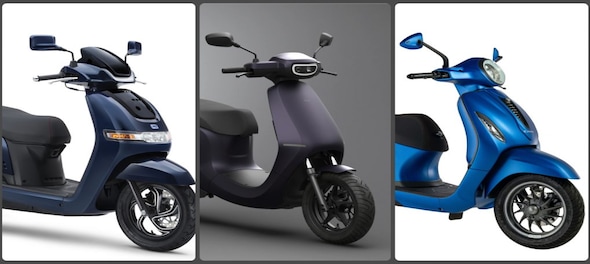
TVS and Bajaj Auto, traditionally known for their internal combustion engine (ICE) vehicles, are now among the top three electric two-wheeler manufacturers in India. They have maintained this position for three consecutive months and have collectively held nearly 70% of the domestic electric two-wheeler market.
In December, Ola Electric had the largest market share at 40%, with TVS and Bajaj following at 16% and 14% respectively. Ola Electric, the market leader, sold over 30,000 units in December.
The company, which also had the highest sales with over 30,219 vehicles in December, offers the entry-level Ola Electric S1X+ scooter at a discount of ₹20,000. Ola Electric plans to launch a range of electric scooters and motorcycles in the next two years.
TVS Motor Company, despite a 48% drop in sales from approximately 19,000 scooters in November to 12,444 in December, continues to hold a strong second position. The company has plans for growth both domestically and in export markets.
Bajaj Auto, which had a 6% market share in April '23, has more than doubled its market share to 14% by December '23. The company sold 10,377 electric two-wheelers in December, a slight decrease from 11,755 in November.
However, Bajaj Auto is now averaging 10,000 electric scooter sales per month and aims to increase this to 20,000 per month soon. The company recently launched two new variants of the Chetak scooter and plans to launch a third variant in the next six months.
The future of the electric vehicle market in India will largely depend on the continuation of government incentives through the FAME scheme. Any reduction or abrupt removal of these subsidies could lead to price increases and a subsequent drop in demand for electric vehicles.
(Edited by : Vivek Dubey)
Check out our in-depth Market Coverage, Business News & get real-time Stock Market Updates on CNBC-TV18. Also, Watch our channels CNBC-TV18, CNBC Awaaz and CNBC Bajar Live on-the-go!


'Borrowed' leaders: Congress hits out at AAP for not fielding their own candidates in Punjab
Apr 28, 2024 9:53 PM
EC asks AAP to modify election campaign song and Kejriwal's party is miffed
Apr 28, 2024 9:25 PM

